
Английский для бакалавров
.pdf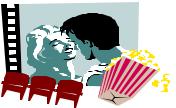
V.Speak about your own family. The following questions will help you.
1.How large is your family ?
2.Are your family early risers ? Why ? What about you ?
3.Are you the eldest of the family ?
4.Do you have any special duties ?
5.Who do you most take after, your mother or your father ?
6.Who are you like in character ?
7.Who do you look like ?
8.Who is the head of your family ?
9.Do you think that older and younger generations should live together ?
VI. Imagine that you are a small child lost in an unknown town. What will you tell a policeman about your father and mother to help him find them.
VII. Imagine that you are
a)a film star;
b)a 15-year-old girl ( boy ) who wants independence;
c)a 18-year-old girl ( boy ).
What will you say about your family to
a)a reporter;
b)your new friend;
c)a stranger.
J U S T F O R F U N
1. Read the poem.
This is our dad, short and stout;
This is our mum, with children all about;
This is our sister, with a doll on her knee;
This is our brother, tall you see;
This is our baby, sure to grow;
And here is our family all in a row.
41
2. Read the jokes. Learn the funniest of them by heart.
-My mother-in-law is an angel.
-You lucky fellow ! Mine is still alive !
***
The meeting-places of love:
Their eyes meet, their hands meet,
Their lips meet, their lawyers meet.
***
Jane: Is the man your sister’s going to marry rich ?
Dick: I think not. Every time mother talks about the wedding father says “poor man !”
***
Ann: Why don’t you marry, Jane ?
Jane: I will only marry a man who knows life and has learned its sorrows. Ann: I see, a widower.
2.Here are some proverbs and sayings. Read them and find the Russian equivalents. Use the proverbs in a natural context.
He that has a wife has a master.
As the baker so the buns, as the father so the sons.
Necessity is a hard nurse, but she raises strong children.
To be born with a silver spoon in one’s mouth.
3. Read the following passage and answer the questions after it:
Here are brief descriptions of the men of the first three months of the year. The January Men do most things rather slowly. So if your man is one of these, do not expect a lightning courtship or a very speedy marriage - though if born before December 28th he will do a little faster. Let him do all the wooing
himself, for he likes to be the leader and to make up his own mind.
Don’t look for him to be a picturesque wooer. He won’t often call you pet names or tell you he loves you. But to the right girl he shows a deep devotion, expressed in deeds of kindness rather than in words.
He is very ambitious. Nothing and nobody must stand in the way of his career. Take a real interest in his work if you want to win and keep him.
The girls who are happiest with January men are those born under the zodiac signs of Taurus, Virgo and his own sign of Capricorn.
42
The February Men are those with birthdays between January 21st and February 20th. You are quite likely to meet this man in a club or institution, for he is interested in all such things and will like you to be.
He is rather pessimistic. But he is fascinating, companionable, trustworthy and a very good father. Except financial ups and downs you may marry him, for his fortunes vary a good deal. The girl who weds him should preferably be born in his own sign or in those of Gemini or Libra.
The March Man makes an almost ideal lover, for he is romantic, deeply affectionate, unselfish and very generous. If he loves a girl he will adapt to her opinions, spend his last penny on her and do everything in the world to show his devotion. At the same time, such a blind love exacts constant attention in return.
He adores travel and often meets his future wife on a journey or staying abroad. He hates long engagements. As he is usually lucky with money when young, the wedding bells are likely to ring soon.
The ideal wife for him is one born under the signs of Cancer or Scorpio, or failing these, in his own sign of Pisces.
Signs of Zodiac.
E Aries - Овен ( 21.03. - 19.04. )
F Taurus - Телец ( 20.04. - 20.05. )
G Gemini - Близнецы ( 21.05. - 20.06. )
H Cancer - Рак ( 21.06. - 22.07. )
I Leo - Лев ( 23.07. - 22.08. )
J Virgo - Дева ( 23.08. - 22.09. )
KLibra - Весы ( 23.09. - 22.10. )
L Scorpio - Скорпион ( 23.10. - 21.11. )
M Sagittarius - Стрелец ( 22.11. - 21.12. )
N Capricorn - Козерог ( 22.12. - 19.01. )
O Aquarius - Водолей ( 20.01. - 18.02. )
P Pisces - Рыбы ( 19.02. - 20.03. )
Questions
1.Do you trust in the zodiac signs descriptions of people?
2.What zodiac sign were you born under? Do you know the name of your zodiac sign in English?
3.Have you a friend born under the zodiac sign of Taurus ( Virgo or so on )? Do you appreciate her / his character? Is he / she a good friend?
4.What sign was your mother ( father ) born under?
43
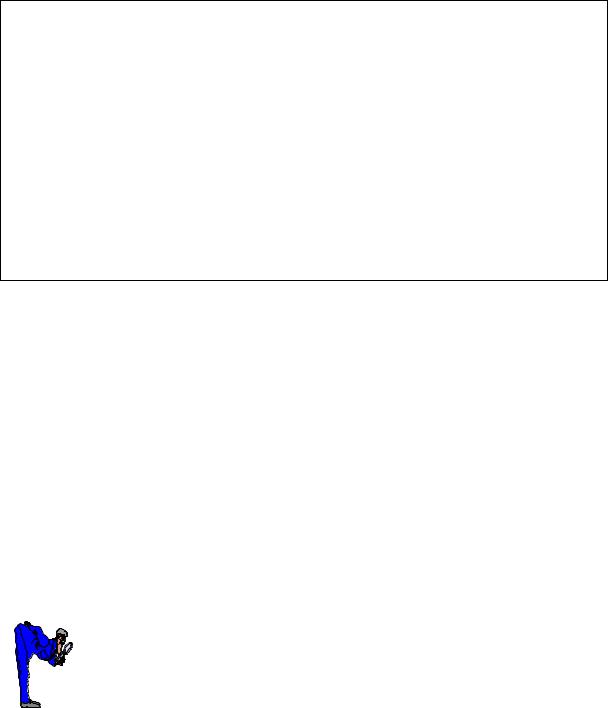
U n i t 2
G r a m m a r:
1.Construction there + be
2.Indefinite and Negative Pronouns
3.Indefinite (Simple) Tenses Present Indefinite Tense (Active)
T e x t s:
A.Education in the Russian Federation
B.Schooling in the United Kingdom
C.University Education in Great Britain
D.Oxford
C o n v e r s a t i o n:
Tula State University
Г р а м м а т и ч е с к и й м а т е р и а л
1. Конструкция there + be
Конструкция there + be (быть, находиться, существовать)
употребляется для выражения наличия (или отсутствия) в определенном месте какого-либо лица или предмета. Данный оборот стоит в начале предложения, за ним следует подлежащее, выраженное существительным, т.е. имеет место обратный порядок слов.
There is |
|
a book |
|
on the table. |
|
|
|
|
|
|
|
|
|
|
There is |
|
подлежащее |
|
обстоятельство места. |
Запомните !
1. При наличии нескольких подлежащих глагол to be
согласуется с первым из них:
There is a table and five desks in the room. There are five desks and a table in the room.
2.Если в предложении с оборотом there + be имеется обстоятельство, перевод начинают с этого обстоятельства:
There is a book on the table.
На столе есть (лежит) книга.
3.При отсутствии обстоятельства перевод начинают с самого
оборота:
There are different kinds of energy.
44
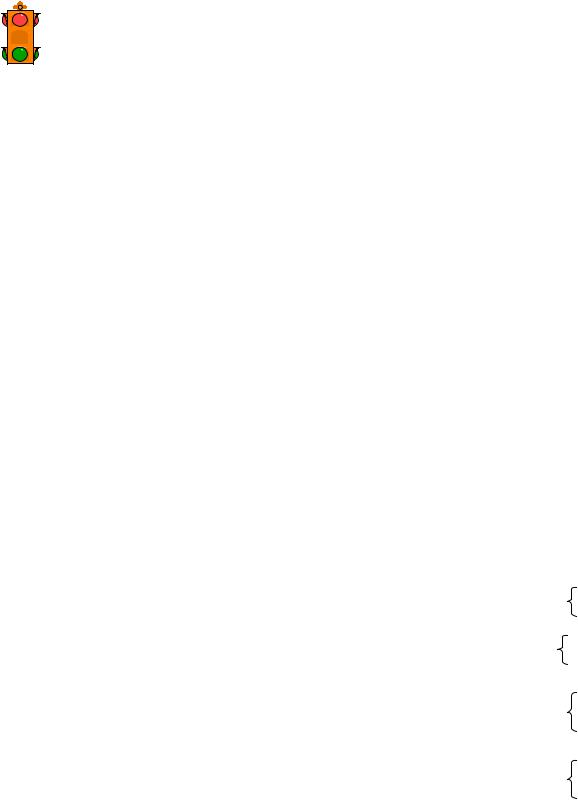
Существуют (имеются) различные виды энергии.
Обратите внимание !


 1. Глагол to be в данном обороте может употребляться в различных
1. Глагол to be в данном обороте может употребляться в различных
временных формах: |
|
There has been a meeting at our |
На этой неделе на нашем фа- |
faculty this week. |
культете было собрание. |
There was a woman and two girls |
В комнате находились женщи- |
in the room. |
на и две девочки. |
There will be 3 lectures tomorrow. |
Завтра будет 3 лекции. |
2.В вопросительных предложениях глагол to be (или вспомогательный глагол, если глагол to be употреблен в сложной форме) ставится перед there:
Are there any students in the room ? Were there many mistakes in the test ? Will there be 2 lectures tomorrow ?
Для образования специальных вопросов следует поставить вопросительное местоимение перед глаголом to be:
What is there on the table ? Who is there in the room ?
How many students are there at the lecture ? What books were there in your bag ? Whose copy-books are there on the desk ?
3.Отрицательные предложения с оборотом there + be могут образовываться двумя способами (см. таблицу).
|
PRESENT |
|
PAST |
|
FUTURE |
|
Утвердительная |
there is a book |
there was a book |
|
|
a book |
|
форма |
there are books |
there were books |
|
there will be |
books |
|
Вопросительная |
is there a book ? |
was there a book ? |
|
a book |
||
форма |
are there books ? |
were there books ? |
will there be |
books |
||
Отрицательная |
there is no book |
there was no book |
there will be |
book |
||
форма (два |
there isn’t any book |
there |
wasn’t |
any |
||
способа |
|
book |
|
|
no |
books |
построения) |
there are no books |
there were no books |
there won’t |
book |
||
|
there aren’t any |
|||||
|
books |
there |
weren’t |
any |
be any |
books |
|
|
books |
|
|
|
|
Заметьте, отрицательная форма there isn’t / there aren’t / there wasn’t / there weren’t / there won’t be используется
45

а) в кратких ответах на общие вопросы : Is there a book on the table ? No, there isn’t.
б) в предложениях, если перед подлежащим стоит числительное или слова many / much / enough:
There isn’t enough money here.
Для выражения полного отрицания наличия предмета или лица в данном месте перед подлежащим ставится отрицательное местоимение по:
There is no book on the table. There are no students in the room. There was no lecture yesterday.
Примечания:
1. Кроме глагола to be, после there могут употребляться и некоторые другие непереходные глаголы такие, как to live жить, to exist
существовать, to appear появляться, to arise возникать, to stand стоять и
т.д. |
|
There arose a lot of questions |
После его лекции возникло |
after his lecture. |
множество вопросов. |
There came a knock at the door. |
Раздался стук в дверь. |
2. Любой из модальных глаголов может входить в конструкцию |
|
there+be. |
|
There must be a mistake in this |
В этом тексте, должно быть, |
text. |
есть ошибка. |
There may have been a storm in |
В их районе, возможно, был |
their region yesterday. |
вчера ураган. |
3. При переводе с русского языка на английский язык предложений с глаголом есть, имеется оборот there is употребляется только при указании места; при указании лица (у меня, у Пети есть...) употребляется глагол to have.
У меня
есть (имеется) интересная английская книга.
На столе
I have an interesting English book.
There is an interesting English book on the table.
46
2. Неопределенные и отрицательные местоимения
(Indefinite and Negative Pronouns)
|
THING |
BODY |
ONE |
WHERE |
|
|
|
|
|
something |
somebody |
someone |
somewhere |
1. В утвердительных |
|||
SOME |
что-то |
кто-то |
кто-то |
где-то |
предложениях |
|
||
|
что- |
кто- |
кто- |
где-нибудь |
2. |
В специальных |
||
|
нибудь |
нибудь |
нибудь |
куда-то |
вопросах |
и общих |
||
|
|
|
|
куда- |
вопросах, |
выражаю- |
||
|
|
|
|
нибудь |
щих просьбу, пред- |
|||
|
|
|
|
|
ложение |
|
|
|
|
anything |
anybody |
anyone |
anywhere |
|
|
|
|
|
что- |
кто- |
кто- |
где-нибудь |
1. В вопросительных |
|||
|
нибудь |
нибудь |
нибудь |
куда- |
предложениях |
|
||
|
|
|
|
нибудь |
|
|
|
|
|
что- |
кто- |
кто- |
где-нибудь |
|
|
|
|
|
нибудь |
нибудь |
нибудь |
куда- |
2. В условных при- |
|||
ANY |
|
|
|
нибудь |
даточных предложе- |
|||
|
|
|
|
|
ниях |
|
|
|
|
всё |
всякий |
всякий |
всюду |
|
|
|
|
|
что угод- |
любой |
любой |
везде |
3. В утвердительных |
|||
|
но |
|
|
|
предложениях |
|
||
|
ничто |
никто |
никто |
нигде |
4. |
В отрицательных |
||
|
|
|
|
никуда |
предложениях |
(при |
||
|
|
|
|
|
отрицательной |
фор- |
||
|
|
|
|
|
ме глагола) |
|
||
|
nothing |
nobody |
no one |
nowhere |
В |
отрицательных |
||
NO |
ничто |
никто |
никто |
нигде |
предложениях |
(при |
||
|
|
|
|
никуда |
утвердительной |
|
||
|
|
|
|
|
форме глагола) |
|
||
|
everything |
everybody |
everyone |
everywhere |
В |
утвердительных, |
||
EVERY |
всё |
все, |
все, |
везде |
вопросительных |
и |
||
|
|
каждый, |
каждый, |
|
отрицательных |
|
||
|
|
всякий |
всякий |
|
предложениях |
|
||
Примечание:
в английском языке everybody, everyone в функции подлежащего требуют после себя глагол в единственном числе 3-го лица.
47

Запомните !
1. Местоимение some и его производные употребляются в  основном в утвердительных предложениях вместо артикля как
основном в утвердительных предложениях вместо артикля как  определение к существительному. На русский язык часто не
определение к существительному. На русский язык часто не
переводится. |
|
I’ve bought some coffee. |
Я купила кофе. |
2. Местоимение any и его производные:
а) в утвердительных предложениях имеют значения: всякий, любой,
всё, везде, всюду:
You may take any of these books.
Вы можете взять любую из этих книг.
б) в отрицательных и вопросительных предложениях заменяют some
и его производные:
Did you make any mistakes in your work yesterday ?
Вы сделали ошибки в своей работе вчера ?
3. В отрицательных предложениях можно использовать:
а) not + any / anything, anybody, anyone, anywhere; б) no / nothing, nobody, no one, nowhere.
He had no English books. I have no paper to write on.
He didn’t have any English books.
Примечание:
местоимение some может употребляться в специальных и общих вопросах, выражающих просьбу или предложение:
Do you have some envelopes ?
У вас не найдется сколько-нибудь конвертов ? Would you like some coffee ?
Вы будете пить кофе ?
Much, many, little, few
Исчисляемые существительные |
Неисчисляемые существительные |
many - много |
much - много |
few - мало |
little - мало |
a few - несколько |
a little - немного |
a lot of, lots of, plenty of - много
48
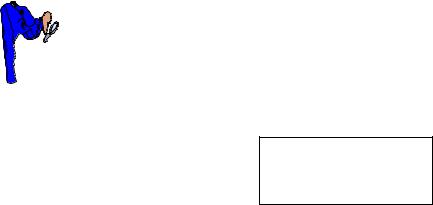
Местоимения many (много), few (мало), a few (несколько)
употребляются перед исчисляемыми существительными и отвечают на вопрос How many ? Сколько ?
I have many (few) English books.
У меня много (мало) английских книг.
Местоимения much (много), little (мало), a little (немного)
употребляется перед неисчисляемыми существительными и отвечают на вопрос How much ? Сколько ?
I have little (much) free time today.
У меня сегодня мало (много) свободного времени.
Примечание:
слова much, little, a little имеют значение наречий, когда они определяют глагол, а не существительное.
She works very much. Она очень много работает.
She speaks English a little. Она немного говорит по-английски.
3. Indefinite (Simple) Tenses
(Неопределенные времена)
Времена группы Indefinite (Present, Past, Future) употребляются для выражения обычных, постоянных или повторяющихся действий в настоящем, прошедшем или будущем времени без указания на их длительность или завершенность.
Present Indefinite Tense (Active)
 Запомните !
Запомните !

 1. Present Indefinite Tense образуется от инфинитива глагола без частицы to;
1. Present Indefinite Tense образуется от инфинитива глагола без частицы to;
 2. В 3 л. ед. ч. глагол принимает окончание -s; если глагол оканчивается на гласную, шипящую или свистящую, окончание имеет форму -es.
2. В 3 л. ед. ч. глагол принимает окончание -s; если глагол оканчивается на гласную, шипящую или свистящую, окончание имеет форму -es.
ask + s = asks go + es = goes
cross + es = crosses
3. Вопросительная и отрицательная формы образуются с помощью вспомогательного глагола do(does) и инфинитива смыслового глагола без частицы to.
49
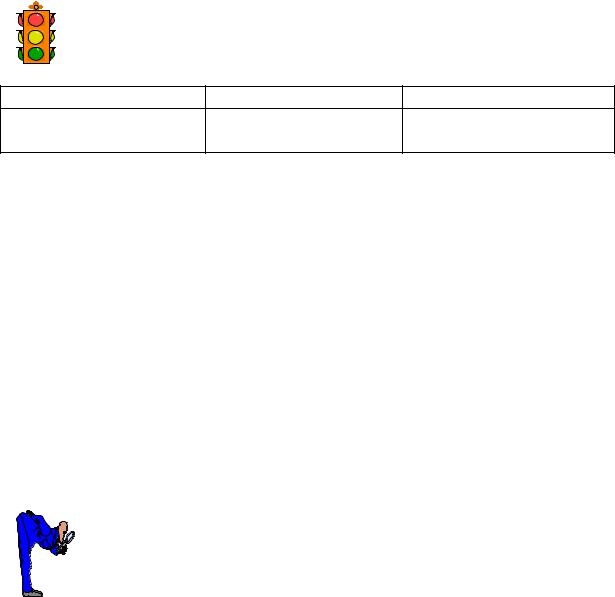
Обратите внимание !
Вспомогательный глагол употребляется |
в форме does только в |
||
3 лице ед. ч. |
|
|
|
Утвердительная форма |
Вопросительная форма |
Отрицательная форма |
|
I ask |
Do I ask ? |
I do not (don’t) ask |
|
He asks |
Does he ask ? |
He does not (doesn’t) ask |
|
Present Indefinite Tense выражает: |
|
|
|
а) факты, отдельные действия. |
|
|
|
The Sun rises in the East. |
Солнце восходит на востоке. |
||
б) обычные, регулярно повторяющиеся действия. |
|||
I go to the Institute every day. |
Я хожу в институт каждый день. |
||
в) последовательность событий, действий.
I get up, do my morning exercises and go to the bathroom.
Я встаю, делаю зарядку и иду в ванную комнату.
г) будущее действие, связанное с расписанием транспорта, программами радио, телевидения и т.д.
The football match starts at 8 o’clock.
Футбольный матч начнется в 8 часов.
 Запомните !
Запомните !
1. Present Indefinite Tense часто употребляется с
обстоятельствами: |
|
always |
всегда |
as a rule |
как правило |
every day (year, month, etc.) каждый день (год, месяц и т.д.) |
|
from time to time |
время от времени |
generally |
обычно, как правило |
often |
часто |
seldom |
редко |
sometimes |
иногда |
regularly |
обычно |
usually |
обычно |
never |
никогда |
2. Глаголы в Present Indefinite Tense переводятся на русский язык глаголами настоящего времени несовершенного вида.
They live in Moscow. |
Они живут в Москве. |
The computer controls the |
ЭВМ управляет движением руки |
50
